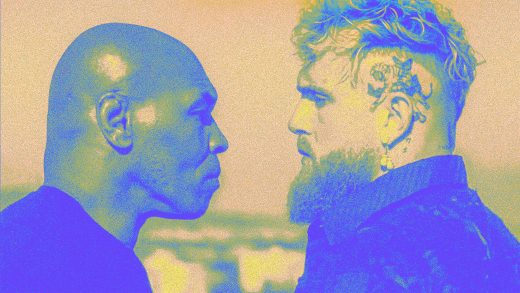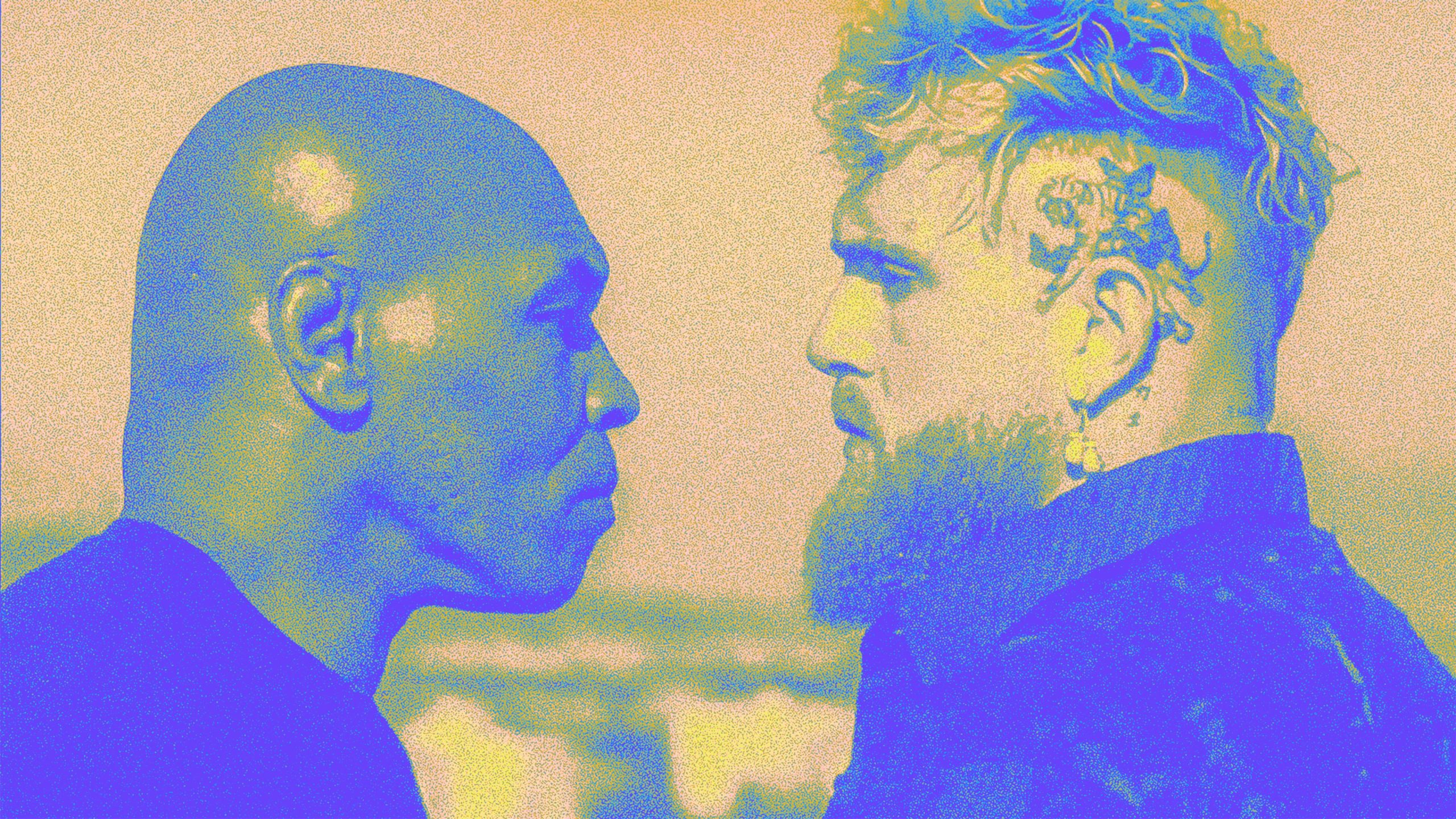Netflix’s Mike Tyson vs. Jake Paul fight will be the ‘Love Is Blind’ of sports
Netflix’s Mike Tyson vs. Jake Paul fight will be the ‘Love Is Blind’ of sports
This event has the feel of a bar-bet idea hatched after last call. And there’s a good chance it will draw one of the biggest audiences for a boxing match ever.
BY Rob Walker
Branded is a weekly column devoted to the intersection of marketing, business, design, and culture.
When Netflix announced recently that it would be live-streaming a boxing match between Jake Paul and Mike Tyson this July, it raised questions about whether the streaming giant might be shifting its sports-content strategy. Live sports-streaming rights are, of course, a hot commodity right now—with Amazon Prime airing NFL games, Apple snagging MLS rights, and Disney’s ESPN teaming up with Fox and others on a new planned sport platform—but Netflix has largely stayed out of that fray.
But the Paul-Tyson event appears to have little to do with sports. Instead, this bout between a YouTuber-turned-fighter and an infamous ex-boxer who will be 58 when it occurs is indicative of something else: Netflix’s cringe-content strategy. It has less connective tissue to the crafted drama of Formula 1: Drive to Survive or The Last Dance than it does to, say, the meme-spewing reality kitsch of Love Is Blind. It’s not about the glory of competitive excellence; it’s about creating a spectacle.
And before I sound like a mere curmudgeonly party pooper, I concede: It is, in a twisted way, a brilliant spectacle, conceptually. It has the feel of a bar-bet idea hatched after last call. And there’s a good chance it will draw one of the biggest audiences for a boxing match ever.
But let’s face it: Nobody is interested in this bout as an actual athletic competition. At least not in the way that the high-stakes, deeply human stories of striving for greatness and achievement animate Netflix sports doc originals: Quarterback, Break Point, and Full Swing. Basically, people will tune in to see what could go wrong. (And presumably, in one legit connection to actual sport, to see how their wagers fare.)
Nobody is going to feel good if this turns out to be Jake Paul beating up an AARP-eligible retiree. And as annoying as Paul may be, it won’t exactly be a joyous outcome if Tyson conjures a flash of his old form to destroy him. If the whole thing ends in a disappointed hail of boos, like Logan Paul’s fight-adjacent cash grab with Floyd Mayweather, it might almost be a relief. The real point isn’t who wins or loses, or even how the game is played. It’s to draw a swarm of viewers to congregate and share their feigned incredulity that anybody is watching this hot mess.
Which brings us back to Love Is Blind and its ilk. The show that, despite its producers’ intentions, has become less about romantic connection than about platforming aspiring influencers (in the most recent episode, cohost Nick Lachey lectured one participant that coming on the show in pursuit of fame “is just wrong”). It’s designed as a guilty pleasure that radiates memes. These can be both funny and cruel (as when one recent participant was excoriated online after saying she resembled Megan Fox) and instantly permeate pop culture—making the show virtual watercooler fodder that’s both binge-worthy and cringe-worthy. It’s also extremely well done for its genre, and popular.
While Netflix was a key player in the rise of prestige television, it has, over time, drifted increasingly toward mass appeal, including sensational (and sometimes divisive) fare—think Squid Games: The Challenge. Meanwhile, Netflix’s original film Maestro became its latest Oscar snub, and, as it happens, the streamer is reportedly not planning to renew the skillfully produced tennis docuseries, Break Point. That’s not to suggest Netflix is abandoning quality, but to draw and maintain 280 million paying customers inevitably involves reaching both highbrow and low(er)brow viewers; it seems prestige is not enough.
Netflix has streamed some live sports events of essentially its own creation, tied into its docuseries properties: notably The Netflix Slam, an exhibition pitting Rafael Nadal against Carlos Alcaraz; and The Netflix Cup, a golf competition featuring players from Full Swing and Formula 1 drivers. The only tie-up it’s made for live rights with a league is a $5 billion, 10-year deal starting in 2025 with WWE Raw—the wrestling entity whose bouts are essentially scripted. Co-CEO Ted Sarandos characterized WWE Raw as “sports entertainment, which is right in the sweet spot of our sports business, which is the drama of sport” and “sport storytelling.”
Whatever Netflix’s long-term sports strategy turns out to be, the Paul-Tyson stunt seems unlikely to be an attractive example to major leagues, which are increasingly cautious about their own brands as they navigate the streaming world. (It is also less a “story” than a carnival attraction.) But it will likely attract a sizable crowd, eager to get in on, and spread the trending topic of the moment. And in this case, that’s the game Netflix is really playing.
ABOUT THE AUTHOR
(29)



